Submitted by WA Contents
atelier masōmī explores the essence of knowledge and process with large-scale drawings in Venice
Italy Architecture News - Jun 01, 2023 - 14:48 3737 views
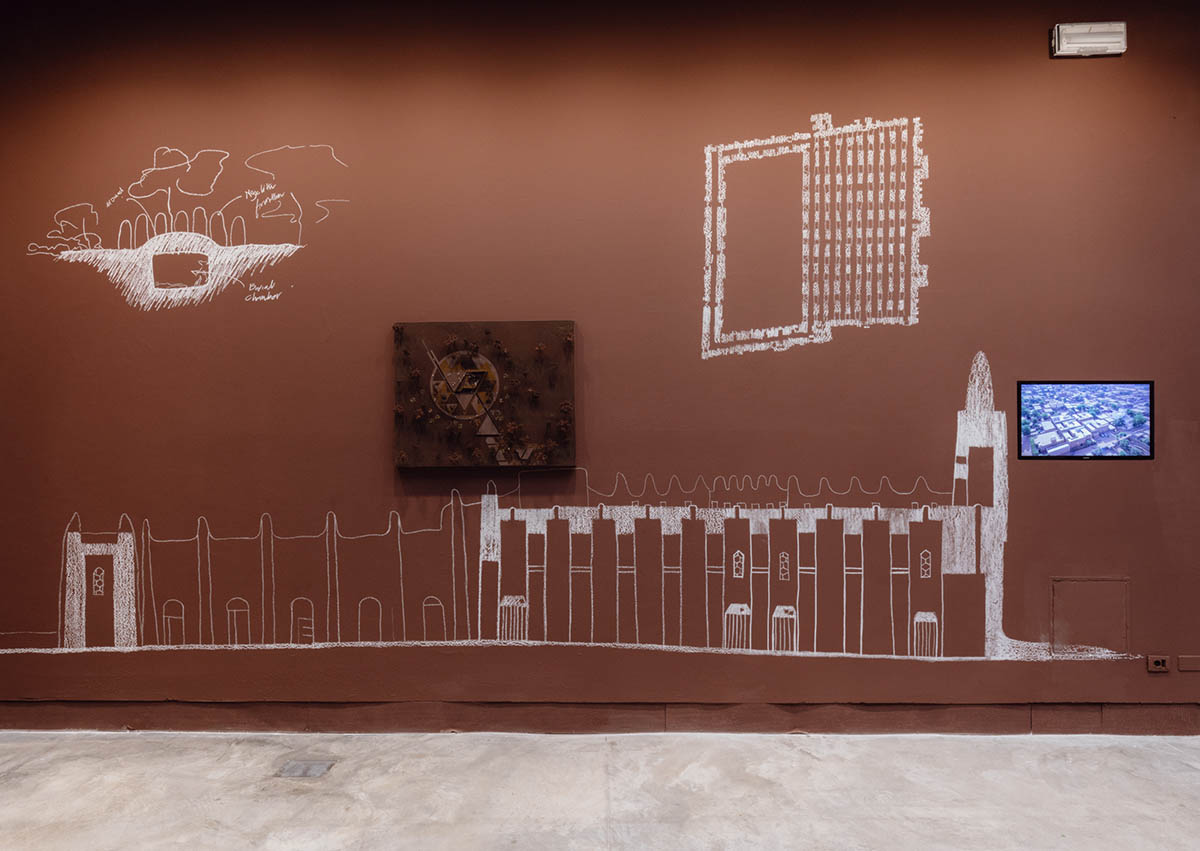
Niger-based architecture studio atelier masōmī has drawn large-scale drawings and attached three dimensional architectural models onto the walls to explore the essence of knowledge and process in architecture at this year's Venice Architecture Biennale.
The installation, titled Process, is situated within a special section, called Force Majeure, at the Central Pavilion in Giardini venue.
atelier masōmī, led by Mariam Issoufou Kamara, preferred to explore its own architectural approach with "an inner monologue, inspiration and non-normative design perspectives that narrate Mariam Issoufou Kamara's philosophy rooted in histroy and identity.

In response to Lesley Lokko's theme, The Laboratory of the Future, the exhibition showcases three precedent studies of Sahelian architecture, placing them side by side with the office's projects like Hikma Community Complex in Niger, Bët-bi Art Museum in Senegal and the Ellen Johnson Sirleaf Presidential Center For Women and Development in Liberia.
The exhibition is enriched by architectural models, videos and hand-drawn plans to invite visitors into a journey and the studio's own laboratory of the future in Niamey.
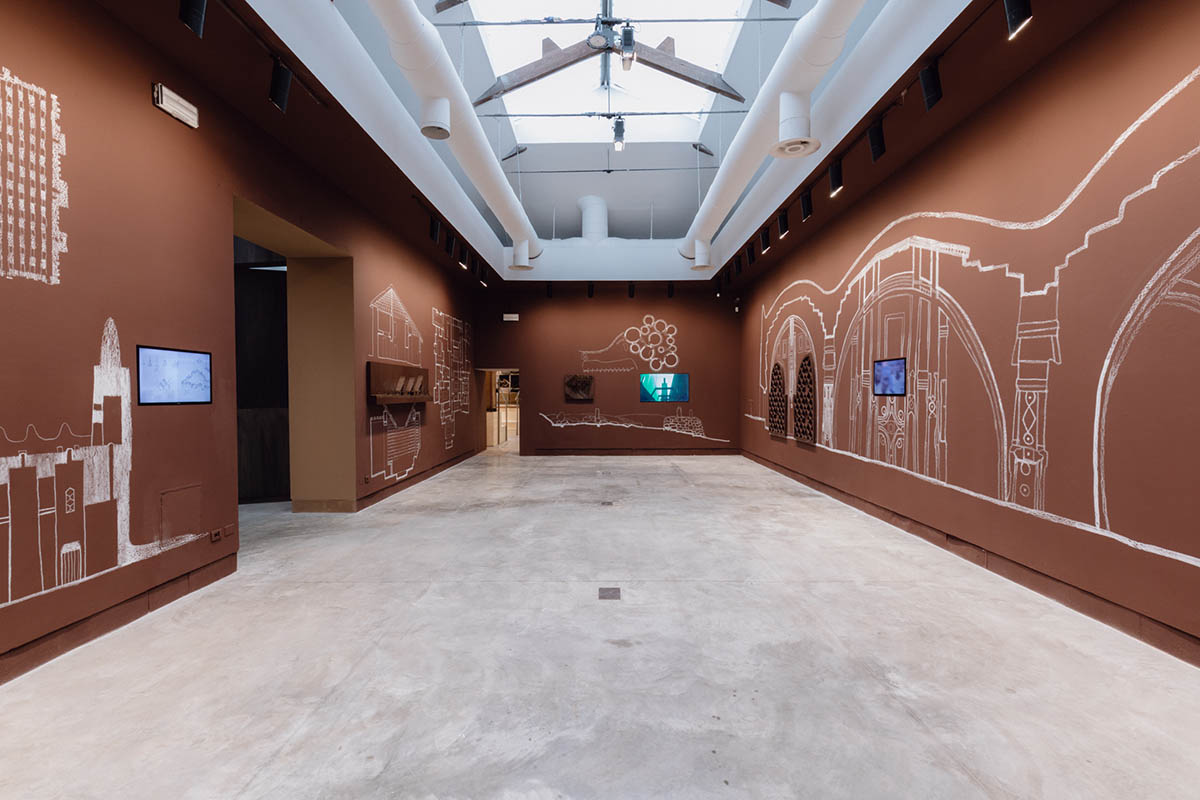
"Process is in some ways about taking back control of knowledge"
"Process is an echo of the past," said Mariam Issoufou Kamara.
"The installation narrows in on several precedents from West Africa, placing them in conversation with models of current projects like Hikma Community Complex in Niger and future projects like Bët-bi Art Museum in Senegal and the Ellen Johnson Sirleaf Presidential Center For Women and Development in Liberia."
"I chose not to reprint source material but rather to reproduce it as large-scale hand drawings to make it mine, ours."
"The wall drawings are a homage to the Neolithic engravings I grew up visiting in the mountains and caves of the Sahara desert," Kamara continued.
"Experiencing them so early in my life gave me a deeper sense of my history and its importance. Process is in some ways about taking back control of knowledge that belongs to us but that lives in books and museums far away," the architect added.
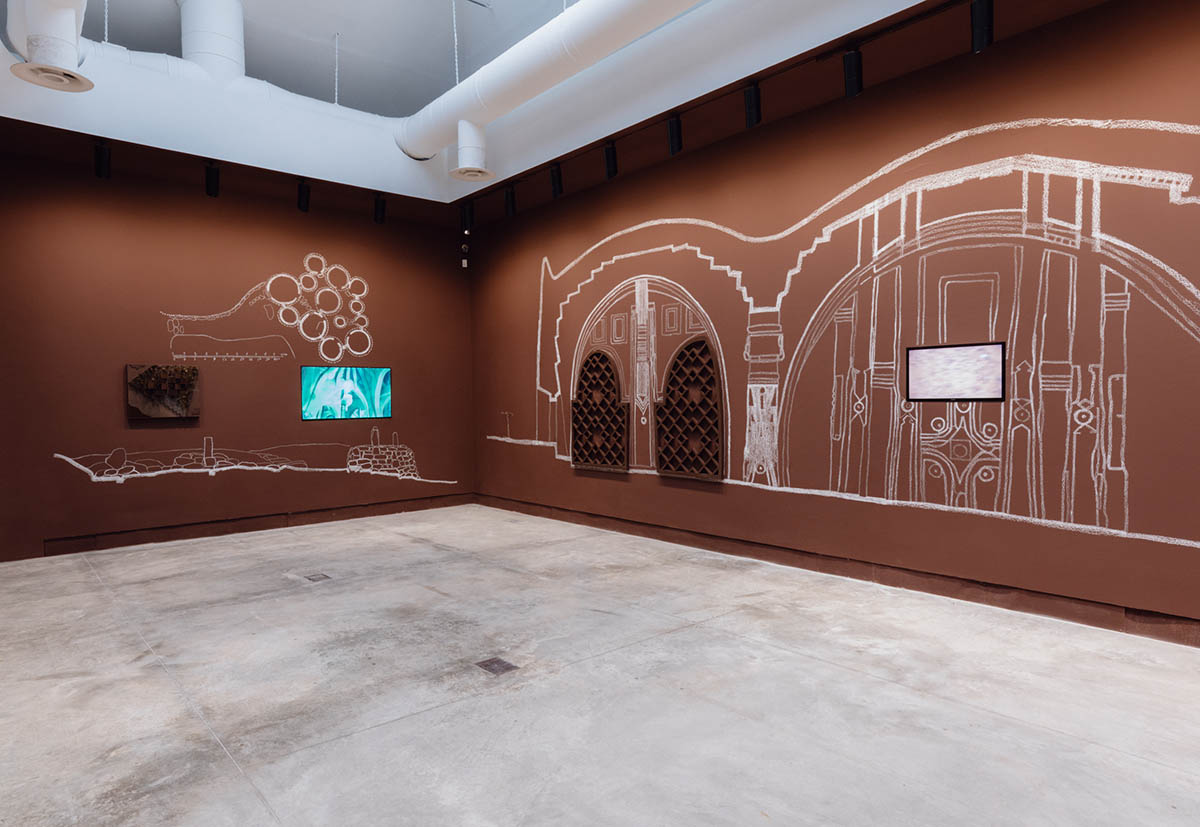
"To make architecture in a context of scarcity, extreme climate and economic vulnerability, we rely on process to bring local narratives to the fore, translating dispossessed identities and history into architectural form. We call this approach Process," stated atelier masōmī in its project description.
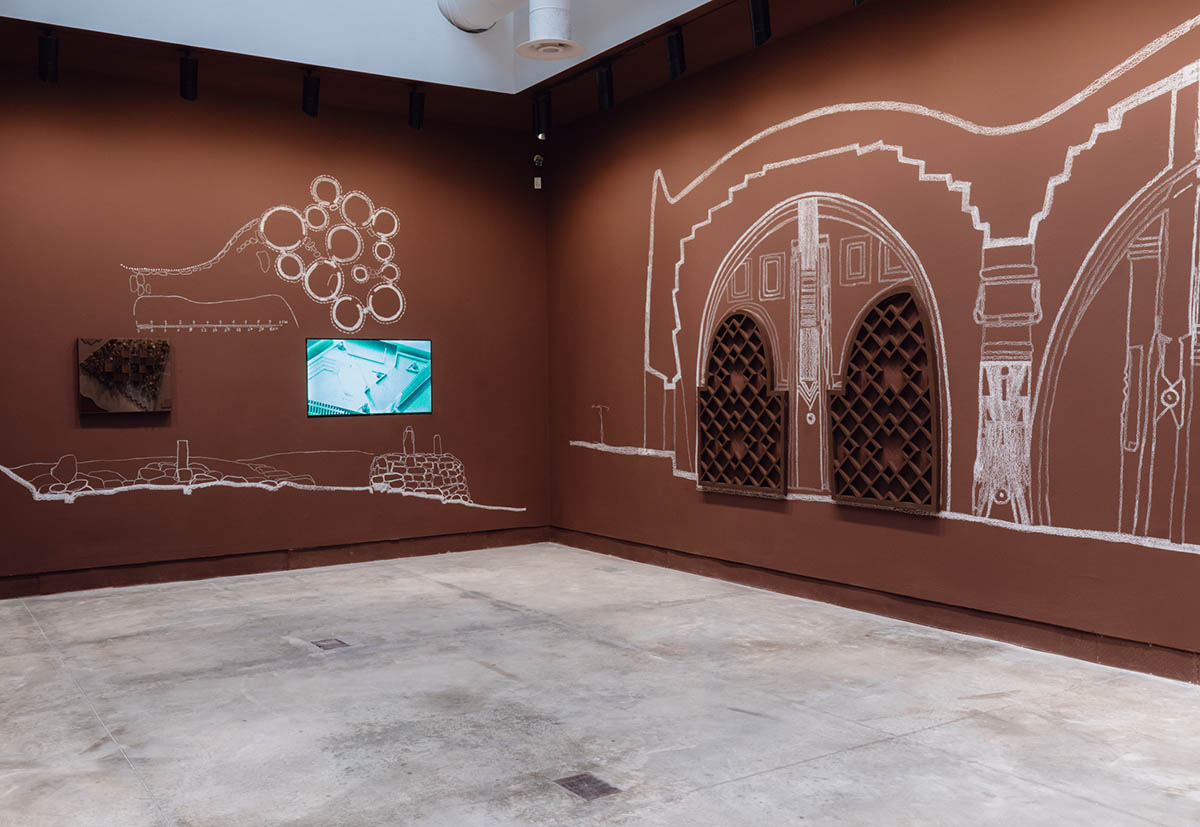
Considering the original location of the office, Niamey, Niger - where the place is emphasized by the ecological, economic and cultural characteristics of its context and the erasure of traditional building techniques from the public consciousness, according to the studio, this aready provides "a laboratory" to be able to make thoughtful architecture that is an extension of the past while innovating towards the future.
"Process is a collision between the future and the past in search of innovative architectural approaches that are relevant to today's chalenges," the studio explained.

With the exhibition of Process, Kamara also criticizes "who currently holds knowledge about our history and who has access to it," and she said that "as such, the installation introspects on how knowledge disseminates to those who have endured a process of erasure of knowledge, history and identity. It hints at global histories of power and domination."
Th exhibition features three videos, including Compressed Earth by artist Jennifer Hsu - which was shot during the opening of the Hikma Community Complex in Dandaji in 2018.
It takes the visitors behind the scenes to offer glimpses into the context, inspiration, and people who are impacted by atelier masōmī’s work.
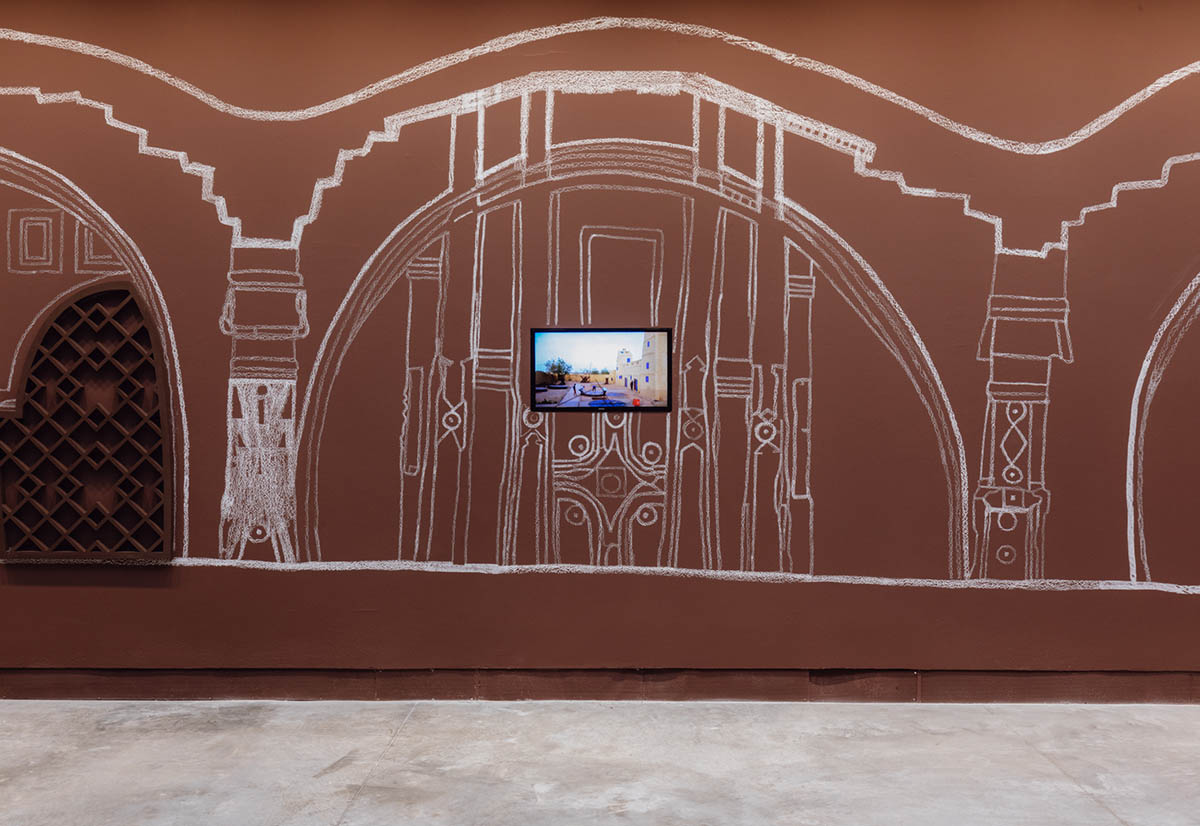
atelier masōmī's design approach is shaped around the heritage, narratives, ingenuity, and identity of a particular context.
By choosing the theme of Process with the drawing the plans onto the walls, Kamara aims to draw attention to "the complexity in simplicity, while treading lightly on the earth."

"The whole exhibition is the inner monologue that drives me as I struggle through issues of design justice," said Kamara.
"It is about how the work that emerges from my internal dialogue and critique does so across multiple symbolisms, geographies and temporalities in order to produce something of the present that also hints at the future," she concluded.
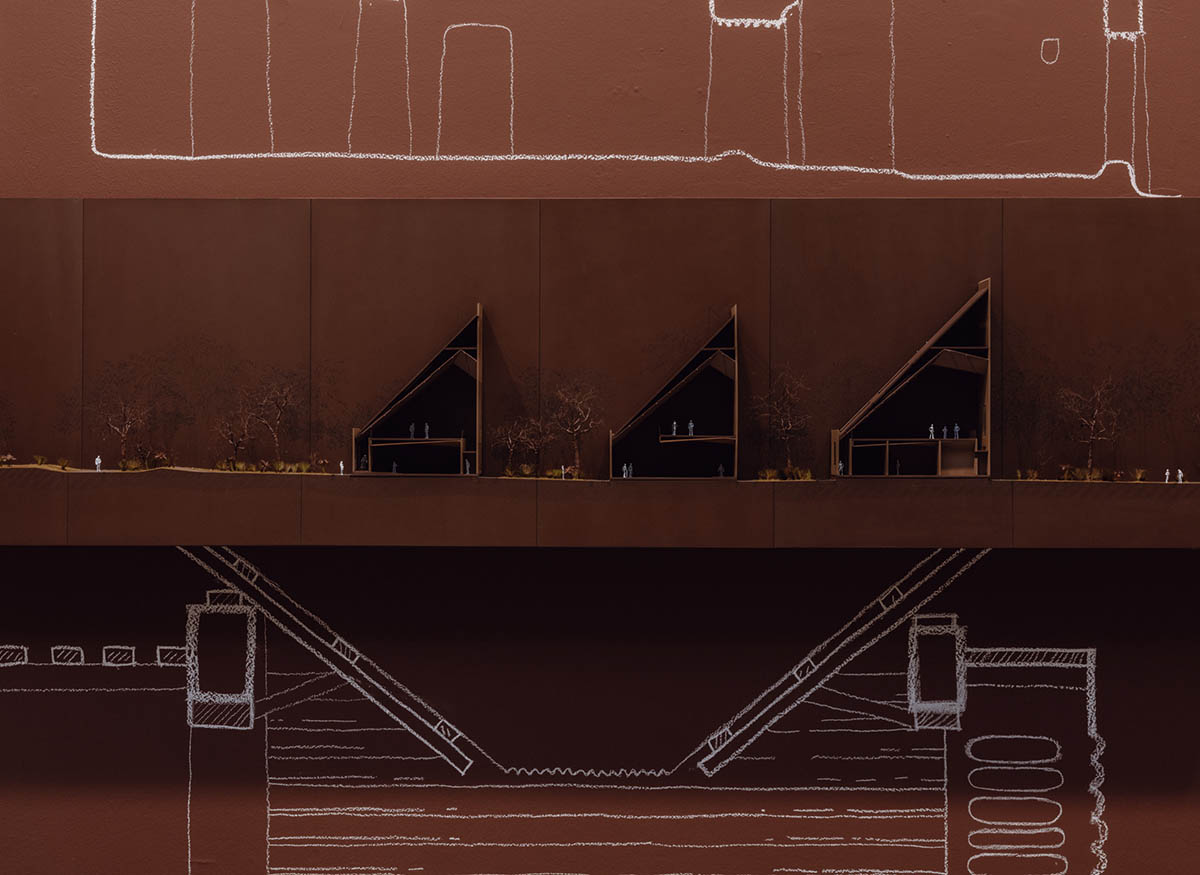
atelier masōmī also unveiled design for the world’s first Presidential Center and Library dedicated to Liberia's former President Ellen Johnson Sirleaf.
While atelier masōmī will lead the overall design of the building, South African architect Sumayya Vally will design scenography, pavilions and exhibition spaces in the building.
The Venice Architecture Biennale 2023 is taking place from Saturday 20 May to Sunday 26 November, 2023 at the Arsenale and Giardini venues in Italy.
The theme of the 18th Venice Architecture Biennale is The Laboratory of the Future curated by Ghanaian-Scottish architect, academic, and novelist Professor Lesley Lokko.
Read more about WAC's coverage about the biennale pavilions on Venice Architecture Biennale 2023. Take a look at inside Process on WAC's Reel.
All images © Matteo de Mayda, courtesy of La Biennale di Venezia.
> via atelier masōmī
atelier masōmī drawing exhibition Mariam Issoufou Kamara pavilion Venice Architecture Biennale
